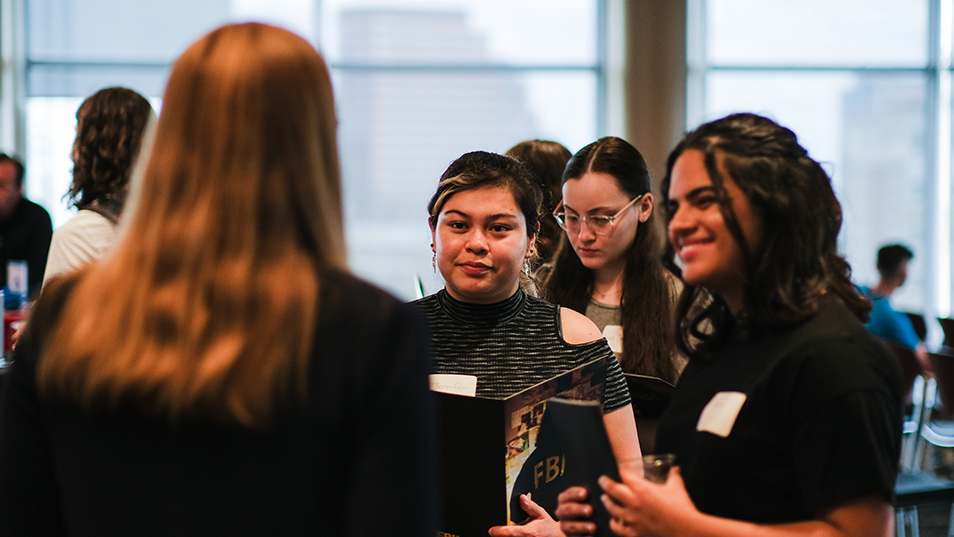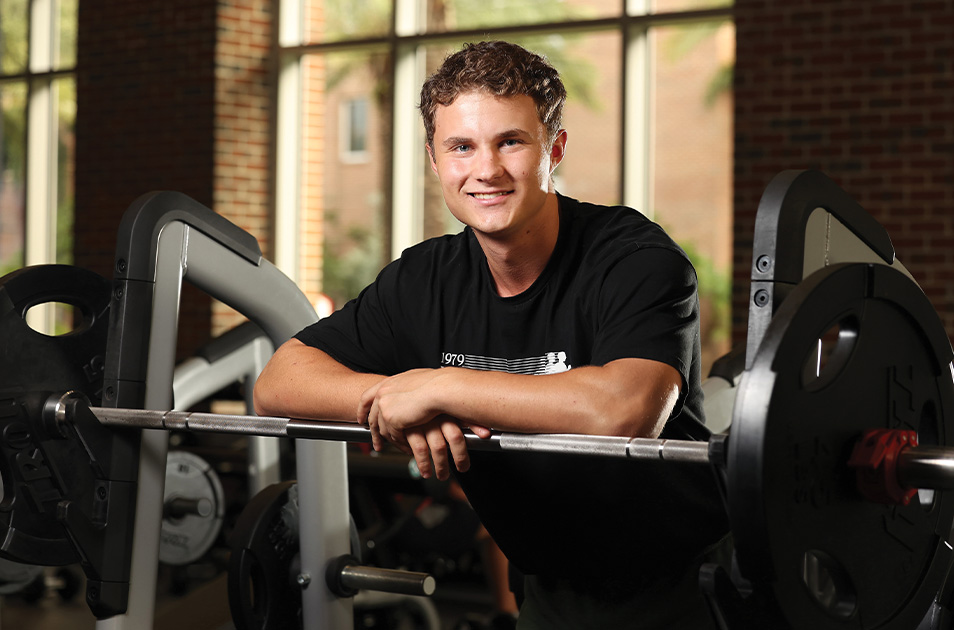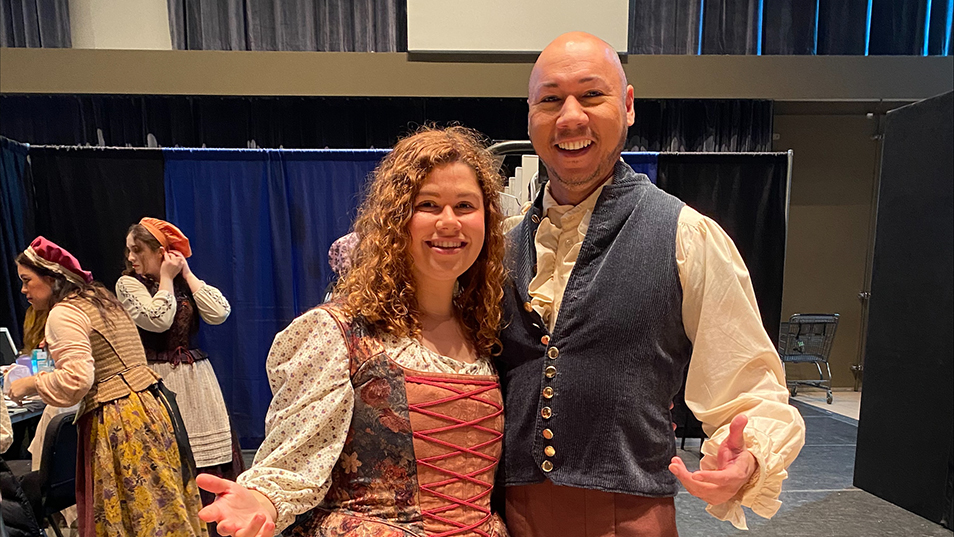Published: July 14, 2022
Career Services Transforms the Traditional Job Fair
Rather than host an old-school job fair, which can sometimes feel stiff and transactional (a student hands over a résumé and receives a business card in return), UT’s Career Services started a new type of event for students in 2018 called “After Hours” that is getting better turnout.
After Hours is two hours long and held later in the day (usually 4-6 p.m., when students are less likely to have class). The event begins with 25 minutes of networking, where students can scope out the room, ease into the experience and mingle with professionals at high-top tables.
Next, Matt Battista, manager of employer relations, moderates a Q&A with a panel of local employers for about 40 minutes, asking questions like:
- “What advice would you give to students?”
- “Can you tell us a story about when you were a student?”
- “What are some positive habits you’ve formed over the years?
- “If you had to predict what your business will need in two years, what would it be?”
The event ends with one more round of networking. “The idea is to support relationship-building,” says Battista.
 Students networking at an “After Hours” event.
Students networking at an “After Hours” event.
Each event tends to be specific to one industry so students can meet a cluster of employers in the same field at once, and this one was for employers who fit the criteria of “nonprofits and government operations.” There are usually two After Hours events per semester.
“The number of employers who wish to recruit UT grads continues to increase. UT is consistently seen as a premium/tier one institution to recruit interns and graduates from,” says Battista. “70% of students want to stay in Tampa now.”
This story first appeared in the Spring 2022* UT Journal.



